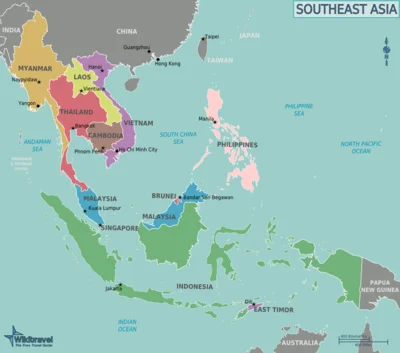Article Directory
Okay, folks, let's dive into this "rigged" controversy surrounding Physical: Asia. The internet's buzzing, right? Claims of favoritism towards Team Korea are flying faster than you can say "burpee." But honestly, I think everyone's missing the bigger picture here.
Beyond the Backlash: A Fitness Revolution
So, Physical: Asia ended with Korea taking the crown, and, predictably, accusations of rigging started swirling. "Korea been cheating since they selected their teams," one TikTok user claimed. The show's subreddit moderator even had to step in, removing comments about "rigging" to keep the peace. I get it, nobody likes feeling like the game was fixed. And sure, some point out that Korea cherry-picked their team from previous seasons. But, hold on a second. Let's look at what's really happening.
This isn't just about one reality show. It's about a global obsession with pushing our physical limits, with celebrating strength and athleticism in a way we haven't seen before. Think of it like the Olympics, but distilled into pure, unadulterated competition, available on demand. And, more importantly, imagine what this is doing to our collective consciousness. We're seeing athletes from all corners of Asia – from Mongolia to Australia – battling it out, showcasing incredible feats of strength and endurance. This is a shared experience, a global conversation, and I think that's far more important than who ultimately wins.
We're seeing comments like, "It was kinda unfair because Korea cherry-picked their participants from the previous two shows’ best contestants. So it was so obvious that they’re gonna win. But congratulations to them.” But here's the thing. The producers even sought out "traditional sports legends of each country." This wasn't just about Korea. Everyone brought their A-game.
Now, some fans are saying the finale was "rigged" in favor of the host nation, questioning the fairness of eliminations, particularly for Japan, Mongolia, and Australia. Some are calling it a "waste of 12 episodes." But I see it as 12 episodes of pure inspiration.
The Sack Toss challenge caused disputes early on, with the Philippines getting eliminated under contentious circumstances. Australia's exit in the semifinals also provoked outrage, with viewers questioning whether the Battle Rope Relay sensors accurately recorded the team's efforts. Japan's elimination during Castle Conquest also raised doubts, with fans criticizing a gate and drawbridge mechanism that allegedly failed during Japan's run. Physical: Asia viewers call Team Korea's finale win 'rigged' after Mongolia, Australia & Japan losses, fans say 'waste of 12 episodes'

But what if these controversies aren't signs of corruption, but rather growing pains? This is a new genre, a new way of experiencing competition. There are bound to be hiccups along the way. It’s like the early days of the internet, full of glitches and dial-up modems, but look at where we are now.
This whole thing reminds me of the early days of space exploration. Remember all the skepticism, the failed launches? But we kept pushing, kept innovating, and eventually, we landed on the moon. Physical: Asia, and shows like it, are pushing the boundaries of what we think is possible, both physically and in terms of global entertainment.
The Real Victory: Global Community
Think about it: people from all over the world are now invested in the physical prowess of individuals from countries they might not have even thought about before. I mean, how cool is that? We're building bridges through barbells and burpees.
What does this mean for us? Well, it means a couple of things. First, it means that the world is getting smaller, more connected. We're realizing that we have more in common than we think. Second, it means that we're starting to appreciate the incredible diversity of human potential. We're seeing that strength and resilience come in all shapes and sizes, from all corners of the globe.
And yes, there's a responsibility that comes with this. We need to make sure that these competitions are fair, that they're inclusive, and that they're promoting healthy attitudes towards fitness. But I have faith that we can rise to the challenge.
